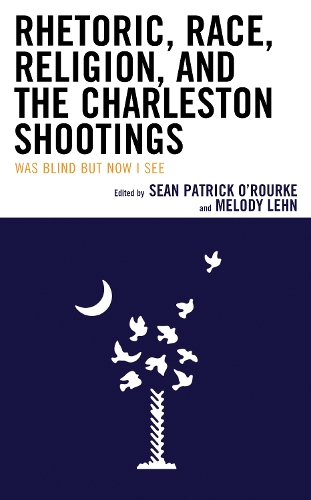
Rhetoric, Race, Religion, and the Charleston Shootings: Was Blind but Now I See
(Paperback)
Available Formats
Publishing Details
Rhetoric, Race, Religion, and the Charleston Shootings: Was Blind but Now I See
By (Author) Sean Patrick O'Rourke
Edited by Melody Lehn
Contributions by Luke D. Christie
Contributions by Patricia G. Davis
Contributions by David A. Frank
Contributions by Margaret Franz
Contributions by Daniel A. Grano
Contributions by Donna Hunter
Contributions by Melody Lehn
Contributions by Camille K. Lewis
Bloomsbury Publishing PLC
Lexington Books
12th October 2021
United States
Classifications
Professional and Scholarly
Non Fiction
Communication studies
Social groups: religious groups and communities
Religious intolerance, persecution and conflict
True crime: serial killers and murderers
364.1523409757915
Physical Properties
Paperback
274
Width 156mm, Height 217mm, Spine 20mm
494g
Description
Rhetoric, Race, Religion, and the Charleston Shootings: Was Blind but Now I See is a collection focusing on the Charleston shootings written by leading scholars in the field who consider the rhetoric surrounding the shootings. This book offers an appraisal of the discourses speeches, editorials, social media posts, visual images, prayers, songs, silence, demonstrations, and protests that constituted, contested, and reconstituted the shootings in American civic life and cultural memory. It answers recent calls for local and regional studies and opens new fields of inquiry in the rhetoric, sociology, and history of mass killings, gun violence, and race relationsand it does so while forging new connections between and among on-going scholarly conversations about rhetoric, race, and religion. Contributors argue that Charleston was different from other mass shootings in America, and that this difference was made manifest through what was spoken and unspoken in its rhetorical aftermath. Scholars of race, religion, rhetoric, communication, and sociology will find this book particularly useful.
Reviews
Rhetoric, Race, Religion, and the Charleston Shootings: Was Blind But Now I See makes vital contributions to scholarly and public understanding of the Mother Emanuel tragedy. The essays within this volume are historically-grounded, theoretically-sophisticated, and extremely relevant to our contemporary context; they provide novel frames for rethinking and for thinking more deeply about white supremacist gun violence in America. Moreover, this collection's incisive and multi-faceted engagement with the politics of memory, forgetting, and forgiveness make it an illuminating text for classroom engagement and a go-to resource for scholars' bookshelves. -- Maegan Parker Brooks, Willamette University
Author Bio
Melody Lehn is assistant professor of rhetoric and womens and gender studies at Sewanee: The University of the South.
Sean Patrick O'Rourke is professor of rhetoric and American studies at Sewanee: The University of the South.
